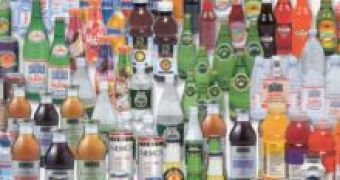Carbonated soft drink consumption was previously suggested to be linked to the 350 percent increase of adenocarcinoma of the esophagus since the mid-1970s, but researchers at YaleSchool of Medicine report that the link is unfounded and that there may, in fact, be a decreased risk of this cancer for diet soda drinkers.
"The theory that soft drinks could be causing this cancer was picked up by the media and widely disseminated. However, there was no direct evidence to bear on this hypothesis, until we initiated our analysis," lead author Susan Mayne said.
The theory was based on factors including similar time trends; acidic carbonated soft drinks causing gastric distension that might affect the lower esophagus; and association of carbonated soft drinks with heartburn at night, a known risk factor for esophageal adenocarcinoma.
Mayne and her colleagues studied 1,095 cancer patients and 687 control subjects. As part of that study, they conducted a full dietary interview and had access to available data on consumption of both regular and diet soft drinks.
"We found that contrary to the hypothesis put forth by other researchers, carbonated soft drink consumption was inversely associated with esophageal adenocarcinoma risk, mainly attributable to diet soda, and that high intake did not increase risk of any esophageal or gastric cancer subtype in men or women," she also said.
Esophageal tumors usually lead to dysphagia (difficulty swallowing), pain and other symptoms, and is diagnosed with biopsy. Small and localized tumors are treated with surgery, and advanced tumors are treated with chemotherapy, radiotherapy or combinations.

 14 DAY TRIAL //
14 DAY TRIAL //